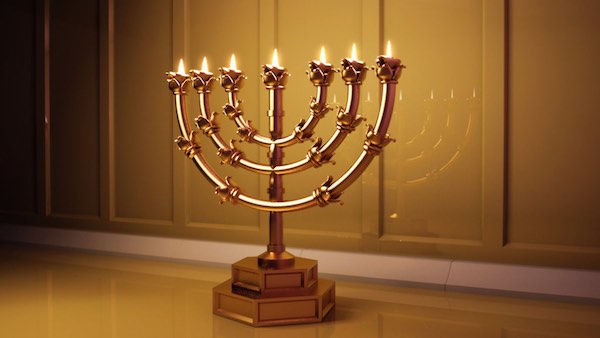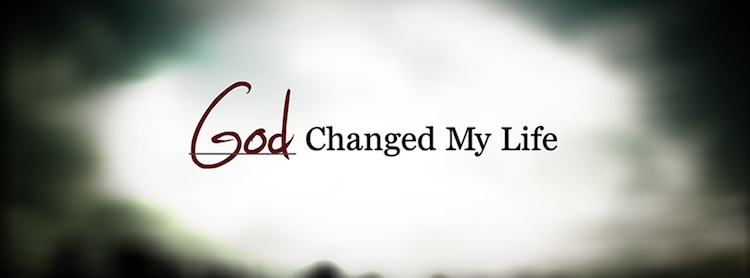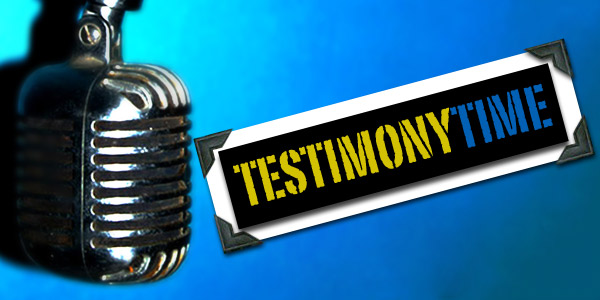This week in Israel we observe Memorial Day on Wednesday, May 11 and we celebrate Independence Day on Thursday, May 12. We observe Memorial Day to remember each fallen soldier in the history of Israel as a nation. We celebrate Independence Day to remember the day when Israel was reestablished as a nation. It is important to remember because by remembering we proclaim what has happened in the past and give testimony to the truth of history.
The nation of Israel is a unique country in the world that bears witness to the hand of God by its very existence. The Jewish people were a nation without a country for nearly 2000 years until the reestablishing of the State of Israel in 1948. The State of Israel is a fulfillment of God’s promise to the people and the Land of Israel (Ezek. 36:22-32) as well as a testimony to the world. We often recall the prophetic question posed in Isaiah: “Can a nation be born in a day?” (Isaiah 66:8) The Nation of Israel was reborn in a day, on May 14, 1948.
The nation and people of Israel are a testimony to the world that God’s Word is true and that God will fulfill every promise which He has given. As we celebrate the 68th year of Israel as a nation reborn and give testimony to God’s faithfulness, I will be focusing this week’s commentary on the power of testimony.
Watch this video as an introduction to this article!
The Appointed Times of the LORD
This week’s Torah Portion is found in Leviticus chapters 21-24 and contains one of the main sections of Scripture which provides great details regarding “מועדי יהוה” – “Moadei Adonai” – “the appointed times of the LORD” (Lev. 23:2). These details are found in Leviticus 23, beginning with the Sabbath day and continuing with all seven of “the appointed times of the LORD.”
Each of these “appointed times of the LORD” is a testimony to who God is, how He provides for His people, and how He redeems His people through His magnificent power. By observing these “appointed times of the LORD” the Israelites were to testify to who God is in this world (Lev. 23:43). To read more about the significance of “the appointed times of the LORD” I recommend reading the following article: The Appointed Times & The Messiah!
Through the “appointed times of the LORD,” which are also called “The Feasts of the LORD,” God commanded that His people continually remember and proclaim who He is. The LORD delights when His people testify to who He is as the Creator of the world through keeping a weekly Sabbath rest as well as observing all of His appointed times in their seasons. Each feast and appointed time of the LORD testifies to His power and greatness. We see another aspect of the of the testimony of God with His people in this week’s Torah Portion through the Tabernacle.
The Menorah
Towards the end of this week’s Torah Portion we read about the instructions for keeping the golden lampstand burning:
Then the LORD spoke to Moses, saying, “Command the sons of Israel that they bring to you clear oil from beaten olives for the light, to make a lamp burn continually. Outside the veil of testimony in the tent of meeting, Aaron shall keep it in order from evening to morning before the LORD continually; it shall be a perpetual statute throughout your generations. He shall keep the lamps in order on the pure gold lampstand before the LORD continually. – Lev. 24:1-4
In Hebrew “the lampstand” is called “המנורה” – “ha’menorah” – “the menorah.” A menorah is a type of light fixture that holds oil or candles for giving light (2 Kings 4:10) and it is also the name used for the seven-cupped light fixture which was used in the Tabernacle (Num. 8:1-4).
The purpose of the Menorah in the Tabernacle, as well as in the Temple, was to provide light inside the holy place (Num. 8:2). Beyond the natural provision of light, there was also spiritual symbolism which accompanied the light from the Menorah. As specified in the verses above (Lev. 24:1-4), the lamps were to be kept burning from evening to morning continually. The word “continually” is used three times in these four verses from Leviticus 24. The lights were to be lit “before the LORD continually,” which seems to symbolize the presence of the LORD. The presence of the LORD and the Menorah were intimately connected.
There is a clear example of the light of the Menorah being equated with God’s presence in the first book of Samuel. During the priesthood of Eli we read about the calling of Samuel as a prophet of the LORD:
It happened at that time as Eli was lying down in his place (now his eyesight had begun to grow dim and he could not see well), and the lamp of God had not yet gone out, and Samuel was lying down in the temple of the LORD where the ark of God was,… – 1 Samuel 3:2-3
The “lamp of God” is spoken of in this context referring to the presence of the LORD. We then read how the presence of the LORD departed from the camp of the children of Israel when the ark of the covenant was stolen away by the Philistines. It was at this same exact time that the wife of Phineas, the priest, gave birth. After hearing of the ark being stolen away by the Philistines, she named her son “אי כבוד” – “Ee- Kavod” – “no glory” or “the glory has departed.” The Tabernacle (or the Temple) was a place where the glory of God dwelt. When the glory of the LORD left, the light of the LORD went out, at least symbolically.

The Menorah & Judaism
Keeping the Menorah lit was a high priority for the Israelites in biblical days and is still a priority for the Jewish people today. How is this possible without the Temple? Many of the Tabernacle and Temple activities, like the lighting of the Menorah, have been replaced in the synagogue and in everyday Jewish life. An example of this is found in a rabbinic commentary regarding the Menorah:
… despite the absence of the Temple and the Menorah, the Jews saw that it was a perpetual law to keep the light lit as a symbol of the perpetual existence of Judaism. And, so, they placed a light – called the “ner tamid,” “perpetual light” – over the ark in their synagogues to represent the light of the Menorah, the perpetuation of Judaism. When the State of Israel was reestablished, the Jews made the Menorah the symbol of the reestablished Israel. – Irwin Jonas, Okelos on the Torah, Gefen Publishing. 2011. p. 197
We can understand from this rabbinic source that the Jewish people view the continual light of the Menorah to represent Judaism itself. The State of Israel even adopted the Menorah as the symbol of the Jewish people. I would even take it one step further and say that God intended His light to shine through the Jewish people as they walked in His ways.
Being the Light of God
The Menorah itself was never something to be worshipped or to receive glory. It was a tool to provide light inside the holy place and symbolized the presence of the LORD. In the same manner, Yeshua instructed His disciples regarding what it means to be the spiritual light of the LORD:
You are the light of the world. A city set on a hill cannot be hidden; nor does anyone light a lamp and put it under a basket, but on the lampstand, and it gives light to all who are in the house. Let your light shine before men in such a way that they may see your good works, and glorify your Father who is in heaven. – Matt. 5:14-16
Just as a lamp is made to serve its purpose and give light, so are we to serve the purpose for which we are created. We are the creation of God and we are to let our spiritual light shine to bring glory to our Father in heaven.
We are all children of God and if we have placed our faith in the Messiah, we must produce good works which display His presence in our life. The good works that we do should always be for the benefit of others and the ultimate glory of God. We are not to be hidden lights in our own little world of spirituality. We are called to be active in good works that are displayed before the world as a testimony to who God is, for His glory. This is our ultimate calling and purpose in life.

The Veil of the Testimony
When the LORD instructed the children of Israel regarding keeping the Menorah lit continually in this week’s Torah Portion, He described the location of the Menorah as “Outside the veil of testimony in the tent of meeting” (Lev. 24:3). The veil (or curtain) which separated the holy place from the holy of holies is given a unique name in this verse, it is called: “פרוכת העדות” – “paroket ha’ehdut” – “the veil of the testimony.” This is the only time in all of the Bible where this veil is called the “the veil of the testimony.” Why is it called “the veil of the testimony”?
Inside the Tabernacle were two main rooms; the holy place and the holy of holies. Inside the holy place was located the Menorah, the altar of incense, and the table of show bread. Inside the holy of holies was located the Ark of the Covenant and the Cherubim which stood above the ark. The veil separated the Ark of the Covenant from the holy place. So why is the veil called “the veil of the testimony”?
The Ark of the Testimony
The Ark of the Covenant was also called the “Ark of the Testimony” (Ex. 25:22). It was called the “ark of the testimony” because the ark housed the two tablets containing the Ten Commandments (Ex. 34:27-28) and the Ten Commandments were also called “the testimony” (Ex. 40:20).
The Ten Commandments represented all of the Law of God to the children of Israel and they also represented the covenant that God made with Israel:
Then the LORD said to Moses, “Write down these words, for in accordance with these words I have made a covenant with you and with Israel.” So he was there with the LORD forty days and forty nights; he did not eat bread or drink water. And he wrote on the tablets the words of the covenant, the Ten Commandments. – Ex. 34:27-28
The storage unit for the Ten Commandments was called the Ark of the Covenant or the Ark of the Testimony. I believe that the word “testimony” is used to describe the Law and Covenant of God with the Israelites because this Law and Covenant served as a testimony between God and the children of Israel. As the children of Israel kept the covenant of God and observed God’s Law they would be a testimony to the world of the Living God whom they served.
Tabernacle of the Testimony
The Tabernacle was the dwelling place of God in the midst of the assembly of the Israelites. The Tabernacle housed the presence of God and the testimony which God gave to the Israelites. The Tabernacle itself was also called “משכן העדות” – “Mishkan Ha’ehdut” – “Tabernacle of the Testimony” (Ex. 38:21). The Tabernacle was a testimony of God on this earth through His people. We see evidence of this understanding in rabbinic resources as well:
It was called the curtain of testimony because the ark was considered a testimony to the world of the existence of God (Rashi based on Sifra) – Irwin Jonas, Okelos on the Torah, Gefen Publishing. 2011. p. 197
As a result of “the testimony” literally being housed inside the Ark of the Covenant in the holy of holies, the various components of the Tabernacle, and the Tabernacle itself, became identified with “the testimony.”

The Tablets, the Manna, and Aaron’s Rod
In the New Testament we read of two other items which were placed inside the Ark of the Covenant:
…and the ark of the covenant covered on all sides with gold, in which was a golden jar holding the manna, and Aaron’s rod which budded, and the tables of the covenant; – Hebrews 9:4
Whether or not the Ark of the Covenant actually housed the manna and Aaron’s rod is debatable. What we do know is that both the jar of manna and Aaron’s rod were ordered to be placed before The Testimony:
- Moses said to Aaron, “Take a jar and put an omerful of manna in it, and place it before the LORD to be kept throughout your generations.” As the LORD commanded Moses, so Aaron placed it before the Testimony, to be kept. – Ex. 16:33-34
- But the LORD said to Moses, “Put back the rod of Aaron before the testimony to be kept as a sign against the rebels, that you may put an end to their grumblings against Me, so that they will not die.” – Num. 17:10
Just like the Ten Commandments, both the manna and the Aaron’s rod were kept in the holy of holies as a testimony to the Israelites. The manna was a testimony of God’s faithfulness to provide for the daily needs of His people. Aaron’s rod, which budded and produced ripe almonds overnight, was a testimony to the Israelites that God establishes authority as He chooses and He had chosen Aaron and his lineage as priests to serve Him.
As we have examined various items which were located inside of the Tabernacle we have seen with good reason why the Ten Commandments, the veil, the ark, and the Tabernacle itself were identified with the word “testimony.” The LORD wanted His people and the world to know that He alone is God Most High and that He alone rules over creation and mankind.
The Testimony of Yeshua
When Yeshua walked this earth ,His life was a testimony of the power of God. He taught the Law of God with authority and He performed signs and wonders which testified of the Father’s anointing on His life as we read in Yeshua’s own words:
If I alone testify about Myself, My testimony is not true. There is another who testifies of Me, and I know that the testimony which He gives about Me is true…But the testimony which I have is greater than the testimony of John; for the works which the Father has given Me to accomplish—the very works that I do—testify about Me, that the Father has sent Me. – John 5:31-32, 36
Yeshua came to demonstrate the works of the Father and His life was a testimony that God was with Him.
The Testimony of God
Just as Yeshua’s life was a testimony to the power and will of God, all who believe on the name of Yeshua are called to bear witness to the testimony of God through His Son Yeshua. Paul the Apostle proclaimed these words:
And when I came to you, brethren, I did not come with superiority of speech or of wisdom, proclaiming to you the testimony of God. – 1 Corinthians 2:1
We do not live and exist to promote our own form of godliness or manmade religion. We live to give testimony to who God is through the manifestation of His Son as the Messiah:
The one who believes in the Son of God has the testimony in himself; the one who does not believe God has made Him a liar, because he has not believed in the testimony that God has given concerning His Son. – 1 John 5:10
This verse makes it clear that “the testimony of God” is in every believer of Yeshua.
Before Yeshua left this earth, He clearly instructed His disciples regarding what they were to focus on during the days of their life. They were called to testify to God’s plan through the life of the Messiah. Yeshua did not simply give them a five or ten year plan, but rather, it was a plan for generations to come. It was a plan that begun 2000 years ago and has yet to be accomplished:
This gospel of the kingdom shall be preached in the whole world as a testimony to all the nations, and then the end will come. – Matt. 24:14
Every believer in Yeshua has the unique privilege to be a testimony to the nations of God’s plan through the Messiah.

Proclaiming the Testimony
As the Menorah was to be a continual light in the Tabernacle, so are we to be continual lights in this world for the glory of God. And just as the Tabernacle and all of it’s components were a testimony of who God is and what He has done, so we, who are filled with the Spirit of God, are to testify to who God is and what He has done in our lives. Do not allow the light of the testimony of God to be snuffed out of your life. We must be active in proclaiming the testimony of God through our life in both words and deeds!
The Jewish people in Israel and around the world will celebrate Israeli Independence Day with great enthusiasm as a testimony to the world that we exist and that God has fulfilled His Word in reestablishing us as a nation in the Land of Israel. In the same manner, all of us who call on the name of the God of Abraham, Isaac, and Jacob, through the Messiah Yeshua, have great reason to proclaim the Testimony of God!
Happy Independence Day & Shabbat Shalom!
If you enjoyed reading this article, share it today with friends! We also invite you to sign up for our weekly Torah Portion commentary on the sidebar to the right.
Help keep our weekly commentaries free and available to all. Click here to donate today:
Torah Portion: Lev. 21:1 – Lev. 24:23
Hafatara: Ezekiel 44:15-31
Return to Torah Portion Homepage
Copyright Jewels of Judaism. All rights reserved 2016


